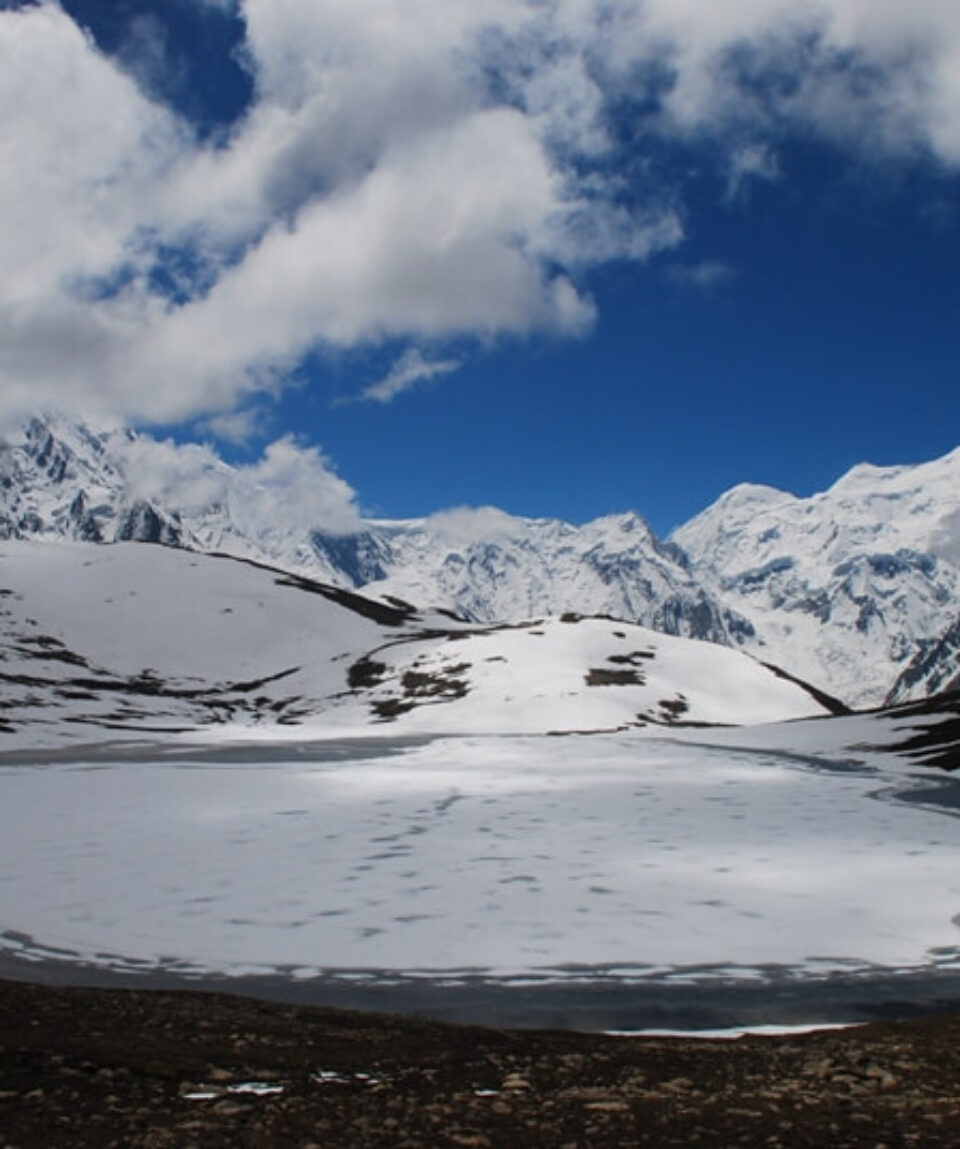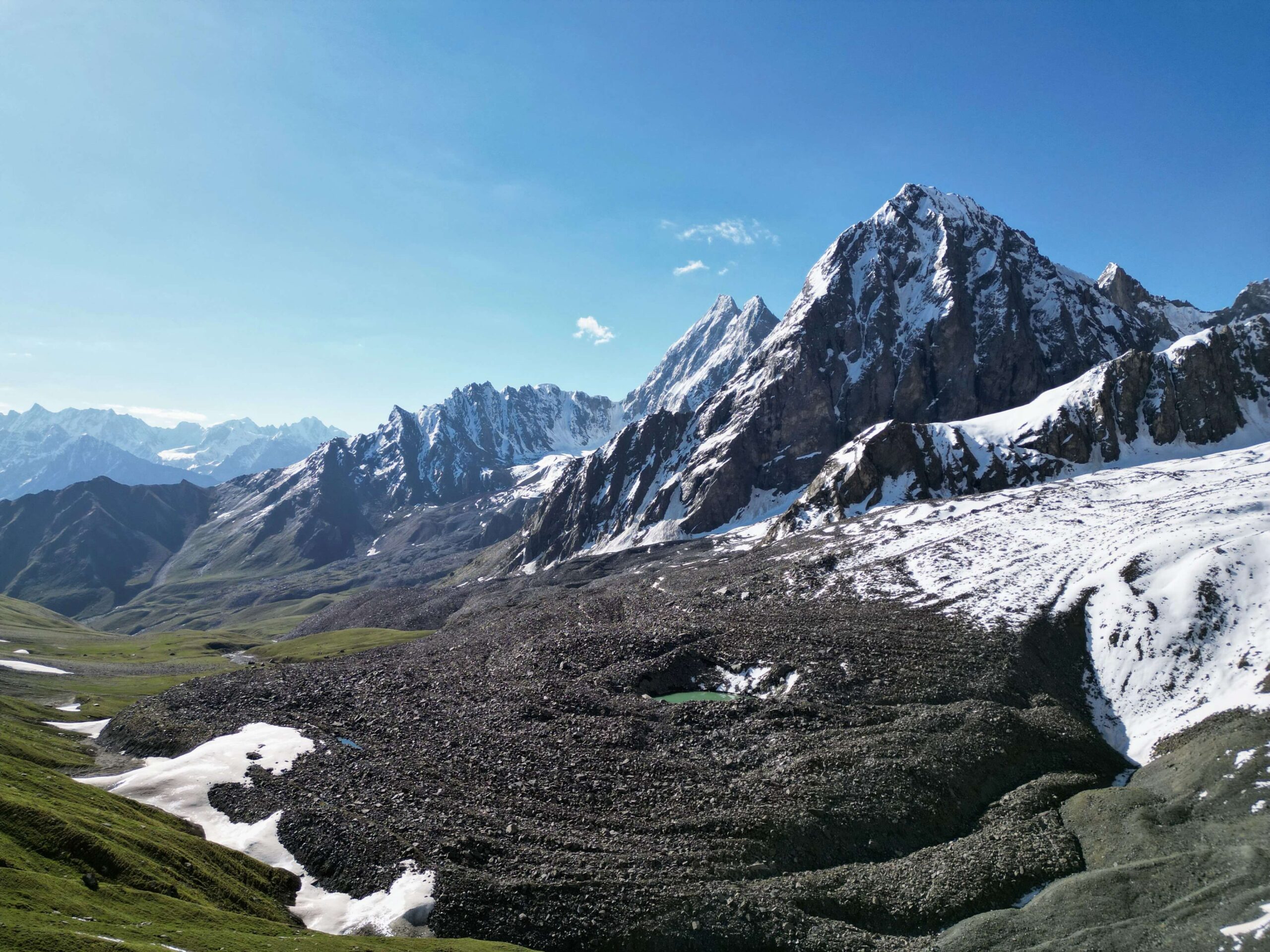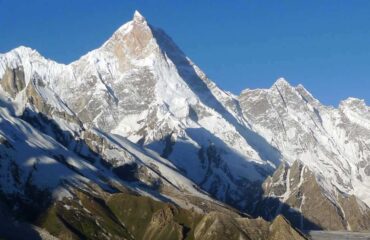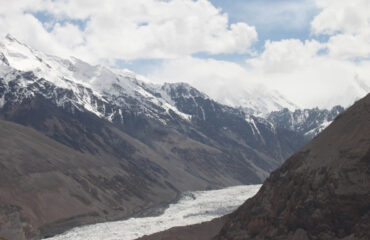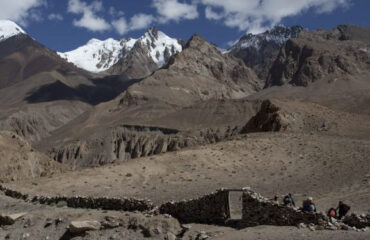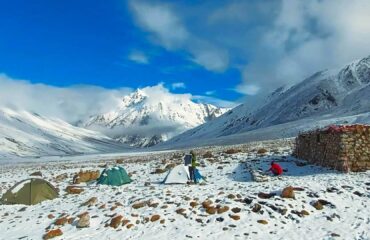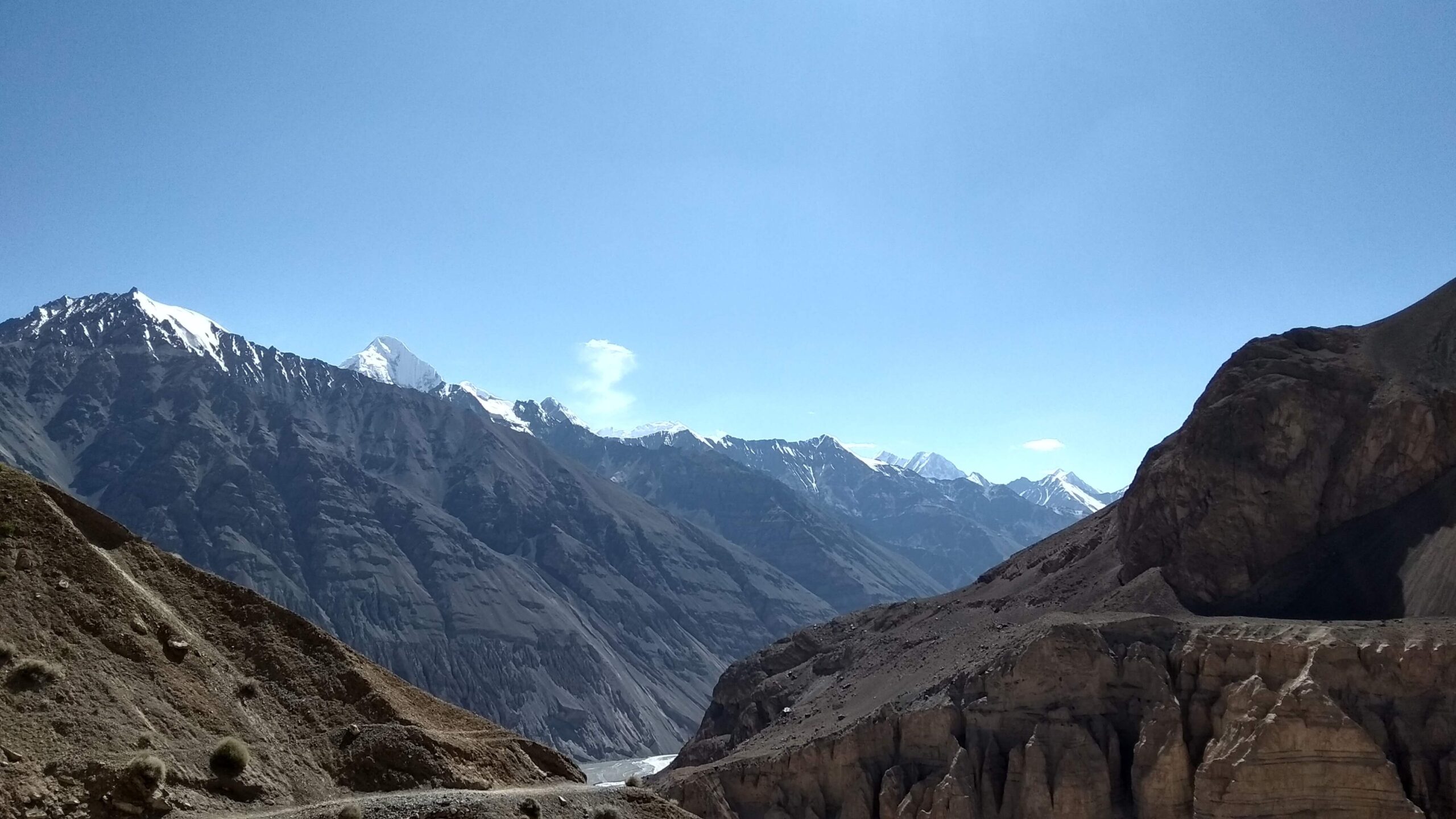Minglik Sar Expedition
fromThe Minglik Sar Expedition is an exciting climbing experience in Karakoram Range, when climbers attempt to reach the majestic Minglik Sar peak, which stands at around 6,050 meters.
-
Reviews 0 Reviews0/5
-
Vacation Style Holiday TypeCamping, Climbing, Expedition Style, Guided, Mountaineering, Rock Climbing, Trekking
-
Activity Level Tough
-
Group Size Large Group
Minglik Sar, located in the Shimshal Valley, Hunza, and rising to a height of 6,050 meters (19,849 feet) above sea level, is a mountain range in the Pamir Mountains. Minglik Sar, the 31st-highest peak in the world, is located in the Pamir Mountains, one of the world’s highest mountain ranges. You travel through one of the most stunning and uncharted mountain valleys on the Minglik Sar Expedition. Climbers will travel through high grasslands and pastures along the way, passing by yaks, sheep, goats, and, if they’re lucky, even the uncommon Ibex. These mountains are also home to the renowned snow Leopards, which, if you’re lucky, you might occasionally be able to see.
Because they connect to numerous mountains in Tajikistan, Afghanistan, Kyrgyzstan, China, and Pakistan, the Pamir Mountains occupy a distinctive role in the region. Along the way, climbers are also promised stunning vistas of glaciers, lakes, high passes, and towering summits. Beautiful Shimshal Valley is a settlement in Gilgit-Baltistan’s Gojal district. It is the highest hamlet in Pakistan’s Hunza Valley and is located at a height of around 3,000 meters above sea level. Three thousand eight hundred km in length, including about two thousand two hundred forty homes. In the distant past, Hunza raiders used the Shimshal Pass to attack trade caravans crossing the Karakoram Pass between China and India.
The Minglik Sar Expedition starts at Shimshal Valley, at a height of 3000 meters, and then proceeds by foot towards Wuch Furzeen, at a height of 3365 meters. From Wuch Furzeen, one can ascend the Minglik Sar from Shimshal Pass (4350m), which is reached after Shuijherav (4350m). More experienced mountaineering abilities, physical fitness, and ideal weather are needed for the ascent to the summit.
Inclusions for both foreign and domestic trekkers
- Adoption of Covid SOPs/Guidelines and Free Safety Pack (Sanitizer, One Mask, and One Pair of Gloves Per Day)
- Every domestic flight (Permitted Checked Baggage: 20kg; Permitted Hand Carry: 7kg)
- All road transfers, including those to and from airports
- Every hotel in Pakistan offers twin-sharing rooms.
- Every trekking facility in Pakistan is a twin-sharing dome tent.
- Each and every campsite and bridge fee
- All gear needed for hiking (tents, non-personal tools, etc.)
- All meals (breakfast, lunch, and supper) and drinks or water consumed while eating
- Dried fruits, tea, and coffee as snacks along the walk
- Licensed professional guide required by the government
- Mountain guide for equipment alignment, rope fixing, and summit guidance (during climbing days)
- Group equipment for high altitudes (rope, ice crew, snow bar, EPI gas, twin-sharing tent, cooking pots, etc.
- Government paperwork
- Fees for Shimshal Nature Trust (SNT)
- Sightseeing in the city/town (depending on time availability) – covers all entrance fees
- Support personnel (cook, assistant(s), etc.)
- Porters – personal luggage (14kg) and mountaineering gear (13kg)
- First-aid (very basic) medical kit
- Emergency satellite phone
Exclusions for both foreign and domestic trekkers
- Permit/royalty charge (these fees are only applicable to a small number of peak categories and are subject to new revisions)
- Personal travel insurance (just recommendations)
- Pakistani visa (Five supporting documents will be provided)
- International Airfare
- Personal items, such as walking sticks, down jackets, and trekking shoes
- Personal climbing gear, such as a helmet, harness, ice axe, mountaineering boot, and two carabiners
- Additional nights in Islamabad (hotel check-in/check-out is at 12 pm) are USD 67 more each night.
- Additional baggage/weight for the trek: US$13 per kg
- Baggage storage in Islamabad is available for USD 28 per bag or piece.
- Gratuities/tips for tour operators, porters, workers, etc.
- Extras include bottled water, a minibar, phone calls, laundry, and souvenirs
- Day 01 Arrive at Islamabad International Airport (590m)
- Day 02 Fly to Gilgit and Drive to Karimabad, Hunza
- Day 03 Enjoy a free day in Karimabad - Official Paperwork
- Day 04 Travel to Shimshal village – Hotel
- Day 05 Free Day in Shimshal Village(final logistics) – Hotel
- Day 06 Trek to Ghar Sar (3,300m) – Camp
- Day 07 Trek to Wooch Furzeen (3,800m) – Camp
- Day 08 Trek to Arbob Purian (3,810m) – Camp
- Day 09 Trek to Shujerav (4,005m) – Camp
- Day 10 Trek to Shuwerth/Shimshal Pass (4,500m) – Camp
- Day 11 Rest or Explore (optional: Ascend Minglik Sar 6,050m)
- Day 12 Rest or Explore (optional: Ascend Minglik Sar 6,050m)
- Day 13 Return trek to Arbob Purian (3,810m) – Camp
- Day 14 Return trek to Wooch Furzeen (3,800m) – Camp
- Day 15 Return trek to Shimshal Village
- Day 16 Travel to Karimabad or Gilgit (2,440m)
- Day 17 Fly to Islamabad
- Day 18 A backup day in case a flight is canceled
- Day 19 Fly to your Home country
Please complete the registration form (click the green “register now and pay later” button) on this page to begin the registration process. Once you submit your form, we will contact you.
If your travel dates do not coincide with our departure dates or if you want to walk alone (with a guide, as required by law), we can arrange solo excursions.
Trekking alone is more expensive than hiking with others. However, it’s crucial to realize that climbing Mount K2 is impossible without a guide and, more crucially, porters (even if a visitor doesn’t want them). Reason: By law, guides are not required to carry any equipment. They need porters to transport everyone’s personal belongings, including the porters themselves, as well as tents, food supplies, equipment, and gas. There are no tea houses or other accommodations, unlike in Nepal. There must be taken enough provisions to last 12–14 days.
People travel in groups on our scheduled excursions, but on the route, nearly everyone walks alone, with the guide following the last member of the group. One of the porters or assistants advances in front of the group. The time gap between the first and last can be up to one or two hours. All hikes on Baltoro are fairly long, so nobody is rushed and everyone moves at their own leisure.
Additionally, we plan treks for exclusive groups. Please get in touch with us and let us know the dates that would work best for your group if you were interested in going on a different journey with your own friends or family.
As a group grows in size, the cost of treks for private groups reduces.
Spending some time getting ready before you leave would be quite fair. You can ask a professional trainer for advice or, on the other hand, you should abide by the fundamental guidelines (hike, long walks, and other cardio exercises that will help you build stamina), knowing that your body should be in good enough shape to walk for extended periods of time and climb for extended periods of time on difficult terrain made up of boulders, dirt, snow, and glacial ice.
You’ll feel a range of temperatures while on your trekking vacation. Up to 45 °C, 30 °C, and 26 °C were recorded in Islamabad, Skardu, and Askoli, respectively. Until we reach the camp at Concordia, when the temperature can be as low as 10 °C or more, a typical day will be warm unless the sky is clouded. The slopes leading up to the Gondogoro La Pass will be covered in snow until early July.
We might be able to walk on snow in June along the highest portions of Baltoro Glacier. By mid-July, snow usually starts to melt. In August and September, snowfall may be possible depending on the weather.
Temperature changes are erratic in the Karakoram Range. Temperatures between Paiju and Concordia may drop to -10 °C at any point throughout the trekking season.
Fixed Departures can reach temperatures as low as -10 °C in September. The Karakoram Range is unaffected by monsoon rains, therefore the summer months are ideal for trekking since they offer clear skies. The participants must be ready to deal with any unfavorable weather circumstances, nevertheless, based on our prior experiences and the fact that the weather is unpredictable.
It is customary for participants to at least give the devoted porters a tip for their labor, which includes lugging heavy loads of supplies and luggage. If the participants are pleased with the guide kitchen crew’s assistance, a payment of between 95 and 120 euros (or its equivalent in your currency) can be made to cover the entire cost of this component. Our trek’s tour guide or leader will be essential in determining how much to tip each crew member and staff member. A “thank you” ceremony will be planned at the end for participants to pass off their tips. Porters who depart early will receive tips earlier
The participants will receive all three meals—breakfast, lunch, and dinner—during this excursion. Our menu will contain a mix of foods from abroad and within Pakistan. Pakistan will be the source of the food’s ingredients. Coffee, cereal, tea, eggs, muesli/porridge, toast, and chapatti will all be included in the breakfast meal. On the trek, lunches will be eaten during the lunch breaks. Options include canned or tinned meals (meat, fish), pickles, crackers, chapatti, pate, and cheese, among others. Our lunch menu for the day is heavily influenced by the weather; participants will start or conclude their meals with tea, coffee, juice, soup, etc.
Every night, the meal will be served in the mess tent, where everyone will congregate to eat the freshly cooked food made by the cooks traveling with our crew. As long as they are nutritious and fresh, fresh veggies will be offered during the first few days of the journey. All vegetarian participants must get in touch with our office and let us know in advance if they require a vegetarian meal plan while on the trek.
Iodized water will be given to trekkers in the mornings, while they are taking breaks and camping. Everybody will drink spring water whenever it is available, but if we run out of options, the participants may have to drink glacier water, which may contain silt.
It is common practice to store water in very big kitchen containers, which also aid in settling the silt particles at the bottom. Participants are welcome to bring their own supplies of bi-carbonated soda if they are sensitive to the smell of iodine. Although everyone benefits greatly from traditional approaches, trying out new ones has no negative effects.
The participants must check in at Islamabad International Airport on the first day. At the gates for international arrivals on the airport grounds, our staff or guide will meet and greet our guests. The host will be escorted to their hotel by the guide or crew. If any of our guests do not need to be picked up from the airport, they must let us know in advance.
Two days ahead of their arrival in Pakistan, they must also provide us with the specifics of both their incoming and departing flights. Our office will email you the names and phone numbers of our office staff after receiving confirmation of your registration and payments.
The majority of the nights will be spent tent camping among the majestic mountains, with a few nights being spent in Skardu and the capital city of Islamabad. While the accommodations in Islamabad are in conventional hotels, the lodgings we chose in Skardu town are some of the best. The accommodations we give at the hotels will be twin-sharing rooms with en-suite bathrooms.
The participants will share a tent large enough for two people while camping. Any person who is traveling on this walk alone will be accommodated by sharing a tent and a room with another participant. First preference will be given to stays with people of the same gender for strangers and lone hikers.
However, a participant can choose a separate tent or hotel room if they so choose; however, there will be an additional charge for arranging a separate arrangement. Participants requiring special assistance must notify our office in advance.
The participants will be awakened by our guide for coffee or a warm cup of tea throughout the trekking days, which will be followed by a satisfying meal in the mess tent. Before breakfast, there will be plenty of time to pack the luggage. After breakfast, the camps will be shut down, and the porters will resume carrying supplies and luggage so that the participants can arrive at the lunch location and begin meal preparation before them. Porters will repeat the procedure in order to get dinner ready for the participants by using the “trek earlier” strategy. Before lunch, a typical hike lasts three to four hours.
Typically, lunch takes an hour, so this is a great opportunity to relax, regain strength, write, read, and do other activities.
The length of the walk will be shorter after lunch than before. The camps will already be put up or already be going when you get to the next camping location. Participants will be given a hot beverage when they arrive at the camp, and supper will be served when it is ready. Once at a camp, participants can relax, read, write, interact with others, and take pictures and videos. The temperature typically drops at night, allowing participants to feel cozy in their sleeping bags and enjoy a full night’s sleep before the next day.
It may be necessary to bring portable chargers, storage cards, and extra batteries on the hiking trip. To ensure that your devices continue to work as long as possible, we urge you to compile a list of all the adapters, plugs, and other electrical equipment you could need.
To find out the best portable battery chargers please visit this link.
We strongly advise our guests to take some time to study the official travel advisories on their country’s Foreign Office website because we endorse and advocate all travel and health safety efforts by various nations across the world. Our first goal is to make sure that our guests are safe. Once we are confident in the safety and security, we won’t begin the journeys. We shall be in constant contact and engage in bilateral communication with the guest who has been reserved for Pakistan.
| Package Confirmed Dates | Trip Status Trip Status | Price (PP) Excluding Flights | Price (PP) Including Flights | |
|---|---|---|---|---|
|
July 10, 2025 - July 28, 2025
|
Guaranteed
|
$3,400
|
N/A
|


